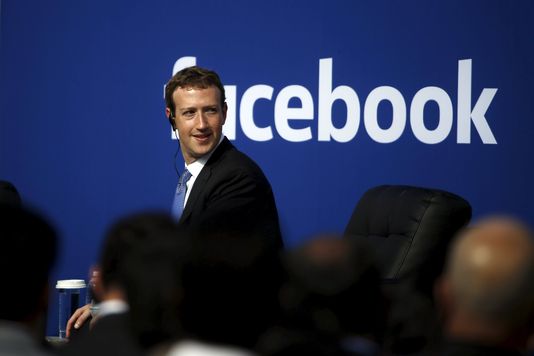Awakening? Reuters telling its journalists to learn more about Americans, not push their own personal ideas
02/08/2017 / By Jude Henry

Anyone who has been following the recent presidential campaign, election, inauguration and early days of the Trump administration knows that the media has leaned toward being biased and pushing their own ideas – to say the least. It’s also clear how President Trump views the media (not exactly favorably). But could there now be a glimmer of hope, a ray of sunshine? Could at least some in the media be experiencing an awakening? The leadership at the prominent news organization Reuters could be indicating that.
Steve Adler, editor-in-chief at Reuters, recently made an interesting statement to staff reporters at the organization. “This is our mission, in the U.S. and everywhere,” he said. “We make a difference in the world because we practice professional journalism that is both intrepid and unbiased.”
And Reuters provided its reporters with an interesting list of “Do” and “Don’t” action items, prefaced with the comment, “We do know that we must follow the same rules that govern our work anywhere.” Here’s a partial list (bold emphasis added):
Do:
Cover what matters in people’s lives and provide them the facts they need to make better decisions.
Get out into the country and learn more about how people live, what they think, what helps and hurts them, and how the government and its actions appear to them, not to us.
Keep the Thomson Reuters Trust Principles close at hand, remembering that “the integrity, independence and freedom from bias of Reuters shall at all times be fully preserved.”
Don’t:
Never be intimidated, but:
Don’t pick unnecessary fights or make the story about us.
Don’t vent publicly about what might be understandable day-to-day frustration.
Perhaps Reuters is realizing that unprofessional and biased behavior has done the media and its reputation a world of hurt. Reading between the lines of Adler’s statement and the “Do” and “Don’t” lists, that seems to be true. Perhaps other mainstream news organizations will experience the same epiphany and will follow Reuters.
Voters and viewers are savvy, and they don’t stick around when they see bias, a lack of professionalism and general nastiness. They know, even just on an intuitive level, that objectivity in reporting the facts is Journalism 101. The awakened masses don’t put up with deceptive and dishonest news sources. So they go elsewhere for their information, and this has caused the mainstream media’s ratings to sink. Those in the media care intensely about ratings, and with at least some organizations, they do what is necessary to regain viewers and readers.
In his first television interview with the mainstream media after the inauguration, Donald Trump boldly told ABC news anchor David Muir to his face during prime time “… that’s why I think a lot of people turned on you and turned on a lot of other people. And that’s why you have a 17 percent approval rating, which is pretty bad.”
For many people who are totally over being force-led lies and deception for too long, that level of tell-it-like-it-is honesty is refreshing and welcome.
Perhaps organizations like Reuters were paying attention to that and realized they better get their act together or watch their ratings and audience numbers fall further.
President Trump won the election despite the intense bias of the mainstream media. He won because voters could see right through that bias and were not swayed by it. They simply went to other sources of information. Trump won perhaps even because of the media’s bias – because people are fed up with a media that so boldly and brashly thinks it can mislead and deceive them. Perhaps at least some in the media are finally changing their ways.
Sources:
Tagged Under: 2016 election, America, corruption, Donald Trump, elections, fake news, government, mainstream media, politics, Trump, wake up america




















